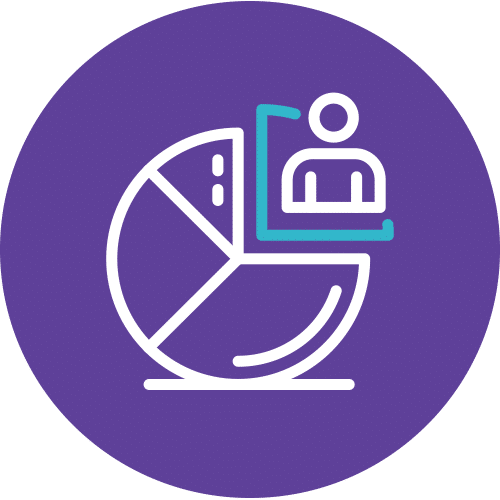Oracle Training: Unlock Your Database Potential
Looking to boost your career in the world of databases and programming? Info Trek’s Oracle Database 19C: Program With PL/SQL course is your key to mastering the art of Oracle programming. In this 5-day, instructor-led training program, you’ll embark on a journey to harness the power of PL/SQL, Oracle’s robust programming language.
Why Oracle Training Matters
If you’re a PL/SQL Developer, Forms Developer, Database Administrator, or any professional looking to excel in the Oracle ecosystem, this course is tailored for you. With a solid foundation in Oracle SQL, you’ll delve into PL/SQL’s core features, syntax, and capabilities. From creating stored procedures and functions to designing triggers and handling exceptions, you’ll be equipped with the skills to optimize database performance, lower IT costs, and elevate the quality of service.
Elevate Your Skillset
At Info Trek, we believe in the magic of interactive lectures, practical exercises, and hands-on experience. We’re not just about teaching; we’re about empowering you to unlock the full potential of Oracle. So, if you’re ready to take your career to the next level, our Oracle training is the path to your success.
Don’t just learn Oracle; master it with Info Trek’s Oracle Database 19C: Program With PL/SQL course.
Course Details
Duration: 5 days; Instructor-led
This course starts with an introduction to PL/SQL and then explores the benefits of this powerful programming language. Through hands-on instruction from expert Oracle instructors, you’ll learn to develop stored procedures, functions, packages and more.
Learn To:
- Conditionally control code flow (loops, control structures)
- Use PL/SQL packages to group and contain related constructs
- Create triggers to solve business challenges
- Use some of the Oracle supplied PL/SQL packages to generate screen output and file output
- Create anonymous PL/SQL blocks, functions, and procedures
- Declare PL/SQL Variables
Benefits To You:
Ensure fast, reliable, secure and easy to manage performance. Optimize database workloads, lower IT costs and deliver a higher quality of service by enabling consolidation onto database clouds.
Use Oracle SQL Developer
You will use Oracle SQL Developer to develop these program units. SQL*Plus is introduced in this course as optional tools.
Course Bundle Note: This course is a combination of Oracle Database: PL/SQL Fundamentals and Oracle Database: Develop PL/SQL Program Units courses
Audience
- Application Developers
- Database Administrators
- Developer
- Forms Developer
- PL/SQL Developer
- Portal Developer
- System Analysts
- Technical Consultant
Prerequisites
- Oracle Database: Introduction to SQL
- Oracle Database: SQL Workshop I Ed 2
- Oracle Database: SQL Workshop II Ed 2
Suggested Prerequisites:
- Previous programming experience
Methodology
This program will be conducted with interactive lectures, PowerPoint presentation, discussion and practical exercise.
Course Objectives
Upon completion of this program, participants should be able to :
- Manage dependencies between PL/SQL subprograms
- Use PL/SQL programming constructs and conditionally control code flow (loops, control structures, and explicit cursors)
- Create stored procedures and functions
- Use conditional compilation to customize the functionality in a PL/SQL application without removing any source code
- Use the Oracle supplied PL/SQL packages to generate screen output, file output and mail output
- Write dynamic SQL for more coding flexibility
- Create overloaded package subprograms for more flexibility
- Create triggers to solve business challenges
- Create and debug stored procedures and functions
- Describe the features and syntax of PL/SQL
- Design PL/SQL anonymous blocks that execute efficiently
- Design PL/SQL packages to group related constructs
- Handle runtime errors
Outlines
Module 1: Introduction
- Course Objectives
- Course Agenda
- Describe the Human Resources (HR) Schema
- PL/SQL development environments available in this course
- Introduction to SQL Developer
Module 2 - Working with Oracle Cloud Exadata Express Cloud Service
- Introduction to Oracle Database Exadata Express Cloud Service
- Accessing Cloud Database using SQL Workshop
- Connecting to Exadata Express using Database Clients
Module 3 - Introduction to PL/SQL
- Overview of PL/SQL
- Identify the benefits of PL/SQL Subprograms
- Overview of the types of PL/SQL blocks
- Create a Simple Anonymous Block
- How to generate output from a PL/SQL Block?
Module 4 - Declare PL/SQL Variables
- List the different Types of Identifiers in a PL/SQL subprogram
- Usage of the Declarative Section to Define Identifiers
- Use variables to store data
- Identify Scalar Data Types
- The %TYPE Attribute
- What are Bind Variables?
- Sequences in PL/SQL Expressions
Module 5 - Write Anonymous PL/SQL Blocks
- Describe Basic PL/SQL Block Syntax Guidelines
- Learn to Comment the Code
- Deployment of SQL Functions in PL/SQL
- How to convert Data Types?
- Describe Nested Blocks
- Identify the Operators in PL/SQL
Module 6 - SQL Statements in a PL/SQL block
- Invoke SELECT Statements in PL/SQL
- Retrieve Data in PL/SQL
- SQL Cursor concept
- Avoid Errors by using Naming Conventions when using Retrieval and DML Statements
- Data Manipulation in the Server using PL/SQL
- Understand the SQL Cursor concept
- Use SQL Cursor Attributes to Obtain Feedback on DML
- Save and Discard Transactions
Module 7 - Control Structures
- Conditional processing using IF Statements
- Conditional processing using CASE Statements
- Describe simple Loop Statement
- Describe While Loop Statement
- Describe For Loop Statement
- Use the Continue Statement
Module 8 - Composite Data Types
- Use PL/SQL Records
- The %ROWTYPE Attribute
- Insert and Update with PL/SQL Records
- INDEX BY Tables
- Examine INDEX BY Table Methods
- Use INDEX BY Table of Records
Module 9 - Explicit Cursors
- What are Explicit Cursors?
- Declare the Cursor
- Open the Cursor
- Fetch data from the Cursor
- Close the Cursor
- Cursor FOR loop
- The %NOTFOUND and %ROWCOUNT Attributes
- Describe the FOR UPDATE Clause and WHERE CURRENT Clause
Module 10 - Exception Handling
- Understand Exceptions
- Handle Exceptions with PL/SQL
- Trap Predefined Oracle Server Errors
- Trap Non-Predefined Oracle Server Errors
- Trap User-Defined Exceptions
- Propagate Exceptions
- RAISE_APPLICATION_ERROR Procedure
Module 11 - Stored Procedures
- Create a Modularized and Layered Subprogram Design
- Modularize Development With PL/SQL Blocks
- Understand the PL/SQL Execution Environment
- List the benefits of using PL/SQL Subprograms
- List the differences between Anonymous Blocks and Subprograms
- Create, Call, and Remove Stored Procedures
- Implement Procedures Parameters and Parameters Modes
- View Procedure Information
Module 12 - Stored Functions
- Create, Call, and Remove a Stored Function
- Identify the advantages of using Stored Functions
- Identify the steps to create a stored function
- Invoke User-Defined Functions in SQL Statements
- Restrictions when calling Functions
- Control side effects when calling Functions
- View Functions Information
Module 13 - Debugging Subprograms
- How to debug Functions and Procedures?
- Debugging through SQL Developer
Module 14 - Packages Packages In Application Development
- Listing the advantages of Packages
- Describe Packages
- What are the components of a Package?
- Develop a Package
- How to enable visibility of a Packages Components?
- Create the Package Specification and Body using the SQL CREATE Statement and SQL Developer
- Invoke the Package Constructs
- View the PL/SQL Source Code using the Data Dictionary
Module 15 - Deploying Packages
- Overloading Subprograms in PL/SQL
- Use the STANDARD Package
- Use Forward Declarations to solve Illegal Procedure Reference
- Implement Package Functions in SQL and Restrictions
- Persistent State of Packages
- Persistent State of a Package Cursor
- Control side effects of PL/SQL Subprograms
- Invoke PL/SQL Tables of Records in Packages
Module 16 - Design Considerations For PL/SQL Code
- What are Oracle-Supplied Packages?
- Examples of some of the Oracle-Supplied Packages
- How does the DBMS_OUTPUT Package work?
- Use the UTL_FILE Package to Interact with Operating System Files
- Invoke the UTL_MAIL Package
- Write UTL_MAIL Subprograms
Module 17 - Dynamic SQL
- The Execution Flow of SQL
- What is Dynamic SQL?
- Declare Cursor Variables
- Dynamically Executing a PL/SQL Block
- Configure Native Dynamic SQL to Compile PL/SQL Code
- How to invoke DBMS_SQL Package?
- Implement DBMS_SQL with a Parameterized DML Statement
- Dynamic SQL Functional Completeness
Module 18 - Design Considerations for PL/SQL Code
- Standardize Constants and Exceptions
- Understand Local Subprograms
- Write Autonomous Transactions
- Implement the NOCOPY Compiler Hint
- Invoke the PARALLEL_ENABLE Hint
- The Cross-Session PL/SQL Function Result Cache
- The DETERMINISTIC Clause with Functions
- Usage of Bulk Binding to Improve Performance
Module 19 - Triggers
- Describe Triggers
- Identify the Trigger Event Types and Body
- Business Application Scenarios for Implementing Triggers
- Create DML Triggers using the CREATE TRIGGER Statement and SQL Developer
- Identify the Trigger Event Types, Body, and Firing (Timing)
- Differences between Statement Level Triggers and Row Level Triggers
- Create Instead of and Disabled Triggers
- How to Manage, Test and Remove Triggers?
Module 20 - Creating Compound, DDL, and Event Database Triggers
- What are Compound Triggers?
- Identify the Timing-Point Sections of a Table Compound Trigger
- Understand the Compound Trigger Structure for Tables and Views
- Implement a Compound Trigger to Resolve the Mutating Table Error
- Comparison of Database Triggers to Stored Procedures
- Create Triggers on DDL Statements
- Create Database-Event and System-Events Triggers
- System Privileges Required to Manage Triggers
Module 21 - PL/SQL Compiler
- What is the PL/SQL Compiler?
- Describe the Initialization Parameters for PL/SQL Compilation
- List the new PL/SQL Compile Time Warnings
- Overview of PL/SQL Compile Time Warnings for Subprograms
- List the benefits of Compiler Warnings
- List the PL/SQL Compile Time Warning Messages Categories
- Setting the Warning Messages Levels: Using SQL Developer, PLSQL_WARNINGS Initialization Parameter, and the DBMS_WARNING Package Subprograms
- View Compiler Warnings: Using SQL Developer, SQL*Plus, or the Data Dictionary Views
Module 22 - Manage Dependencies
Overview of Schema Object Dependencies
- Overview of Schema Object Dependencies
- Query Direct Object Dependencies using the USER_DEPENDENCIES View
- Query an Objects Status
- Invalidation of Dependent Objects
- Display the Direct and Indirect Dependencies
- Fine-Grained Dependency Management in Oracle Database 12c
- Understand Remote Dependencies Recompile a PL/SQL Program Unit










